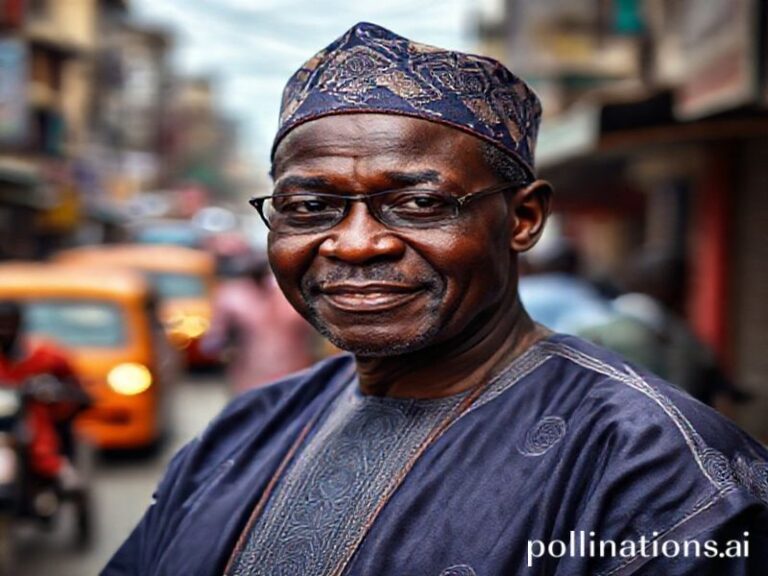Jacob deGrom’s Elbow: The Tiny Joint Shaking Global Baseball Economics
Jacob deGrom and the Curious Global Economics of a Right Arm Worth More than Slovenia
Dateline: Somewhere between the Citi Field mound and a Swiss orthopedic clinic—because that’s the only radius wide enough to capture the geopolitical footprint of one Jacob deGrom, a man whose ulnar collateral ligament carries a GDP roughly equivalent to Montenegro’s.
To most of the planet—say, the 7.8 billion humans who do not reflexively check Pitching Ninja between Zoom calls—deGrom is a name that surfaces on push alerts the way distant artillery fire pops up on Ukrainian Telegram channels: alarming, context-free, but vaguely suggestive that something expensive just exploded. Yet for the last decade, the 35-year-old Texan has quietly functioned as a one-man petrodollar for Major League Baseball’s sprawling, ever-awkward empire. Every 99-mph fastball is a miniature Bretton Woods agreement, stabilizing broadcast deals from Seoul to São Paulo, selling caps in Rotterdam, and—until recently—keeping the Texas Rangers’ entire accounting department from sobbing into their Lone Star beer.
The irony, of course, is that the same ligaments now being reassembled by a team of surgeons whose sutures cost more per stitch than the average Bangladeshi monthly wage are also the reason MLB franchises speak of “velocity inflation” the way European central bankers talk about energy prices. When deGrom underwent his second Tommy John surgery in June, analysts from Goldman Sachs to NPB’s Yakult Swallows updated their 2024 revenue models faster than you can say “structural adjustment program.” The man has thrown 1,326 major-league innings; his medical file alone is longer than most OECD climate accords.
Globally, this matters because baseball—once America’s quaint pastoral pastime—has spent the last thirty years mutating into a hedge fund with bleachers. The sport’s international signing apparatus now resembles nothing so much as the scramble for 19th-century African rubber, except the colonial outposts are Dominican academies and the extracted resource is 17-year-old exit velocity. DeGrom, a product of Stetson University rather than a Boca Chica buscon academy, is nevertheless the poster child for the final export: a finished commodity so refined that even nations indifferent to balls and strikes (looking at you, Finland) still tune in to see if the human shoulder can, in fact, be monetized beyond historical precedent.
Consider the ripple effects. Japanese network NHK cut away from a Diet debate on pension reform to show deGrom’s rehab bullpen sessions—ostensibly for sports news, but really because nothing reassures an aging society like watching a multimillion-dollar elbow get iced in real time. Meanwhile, in Seoul, KBO execs quietly rejoiced; every deGrom-less month in Arlington nudges another Korean teenager toward a domestic league that pays less than a Seoul taxi driver but at least guarantees intact ligaments. And in the United Arab Emirates, where sovereign wealth funds diversify into everything from Manchester City to esports, analysts now list “pitching injuries” alongside oil futures as market volatility factors. You can practically hear the Excel sheets tremble.
None of this, naturally, appears on Jacob deGrom’s LinkedIn. His public persona remains the polite Texan who answers press-conference questions as if he’s ordering sweet tea: courteous, efficient, blessedly free of geopolitics. Yet beneath the aw-shucks lies the same existential bargain every modern athlete strikes: trade a finite body for infinite capital, then watch the world build derivatives on your cartilage. Somewhere in Zurich, actuaries have already priced the probability of a 2025 World Series MVP at 7.3%, down 2.1% post-surgery. If that isn’t globalization in cleats, what is?
So when deGrom finally returns—slinging 98 again, or perhaps a more humane 94—remember you’re not just witnessing a pitcher. You’re watching a walking sanctions regime, an export commodity, a living debt instrument whose ERA is monitored by hedge-fund interns in three time zones. And should his rebuilt elbow pop again, somewhere a small country will feel the GDP tremor.
Humans, after all, love to pretend sports are simple. The scoreboard says 1-0, but the spreadsheets know better.







